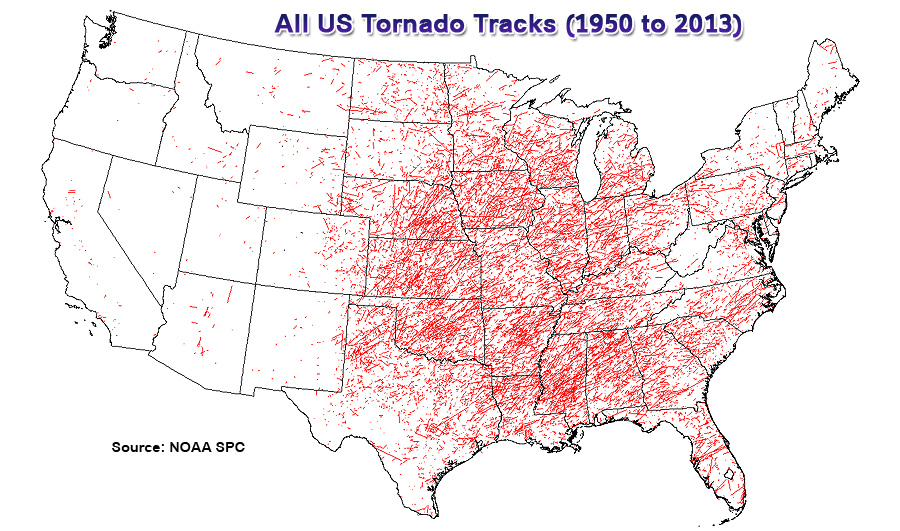Jeremy Den Hartog
About 6 months ago, my Wife and I moved to Lincoln, NE from Mankato, MN. To my surprise, it seems many people here in Lincoln are oblivious or in denial to the fact that a tornado will one day probably hit the city - its just a matter of when. What I found particularly interesting was that the same myths that people believe here in Lincoln are the same as what I would hear in Mankato, MN despite the obvious increase of tornadic activity in this part of the country as opposed to southern MN.
The most common myths I hear In Lincoln (and for the most part also heard in Mankato):
- Lincoln will never be hit because its in a valley. This one baffled me. In a valley?? Where is this "valley"?? It is what people believe here though as I have heard several people say it. At least in Mankato, it really was in a "valley" - not that it matters though as that won't stop a tornado.
- Lincoln is a bigger city, tornadoes don't hit bigger cities. Obviously this isn't true - how quickly people forget.
- Storms always split and go around the City. I'm sure this does happen sometimes...but I wouldn't count on it.
I have also heard people saying negative things when I'm out chasing and stop to get fuel. Several times I have heard a person complaining about the tornado warning that was issued and that weather people are idiots despite the fact a tornado had just passed near their area.
I realize it's not directly my responsibility, but I'm not sure what we can do to try to better inform people of the risk. I don't chase to "save lives" but it is a bit terrifying to hear people sometimes. I, along with a local TV Meteorologist have tried to hold a seminar in the past to try to help better educate people. Unfortunately the interest really isn't there for the most part. The only way people seem to learn is when they are actually hit by a tornado. My biggest fear, since I work in a group home with adults who have disabilities, are that people won't take the warnings seriously when they are caring for some of these individuals (in fact I know they often don't as these are mostly the people who told me the myths I referenced above).
I'm assuming these myths are fairly common throughout the Country. As chasers, what do you guys do when you hear these things? Personally I usually "try" to inform but in most cases it goes in one ear and out the other. Maybe someone out there has had better success though - or at least has other common myths they hear...
The most common myths I hear In Lincoln (and for the most part also heard in Mankato):
- Lincoln will never be hit because its in a valley. This one baffled me. In a valley?? Where is this "valley"?? It is what people believe here though as I have heard several people say it. At least in Mankato, it really was in a "valley" - not that it matters though as that won't stop a tornado.
- Lincoln is a bigger city, tornadoes don't hit bigger cities. Obviously this isn't true - how quickly people forget.
- Storms always split and go around the City. I'm sure this does happen sometimes...but I wouldn't count on it.
I have also heard people saying negative things when I'm out chasing and stop to get fuel. Several times I have heard a person complaining about the tornado warning that was issued and that weather people are idiots despite the fact a tornado had just passed near their area.
I realize it's not directly my responsibility, but I'm not sure what we can do to try to better inform people of the risk. I don't chase to "save lives" but it is a bit terrifying to hear people sometimes. I, along with a local TV Meteorologist have tried to hold a seminar in the past to try to help better educate people. Unfortunately the interest really isn't there for the most part. The only way people seem to learn is when they are actually hit by a tornado. My biggest fear, since I work in a group home with adults who have disabilities, are that people won't take the warnings seriously when they are caring for some of these individuals (in fact I know they often don't as these are mostly the people who told me the myths I referenced above).
I'm assuming these myths are fairly common throughout the Country. As chasers, what do you guys do when you hear these things? Personally I usually "try" to inform but in most cases it goes in one ear and out the other. Maybe someone out there has had better success though - or at least has other common myths they hear...


